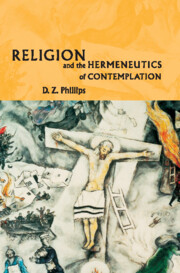Book contents
- Frontmatter
- Contents
- Preface and acknowledgements
- 1 Hermeneutics and the philosophical future of religious studies
- 2 Bernard Williams on the gods and us
- 3 Hume's legacy
- 4 Feuerbach: religion's secret?
- 5 Marx and Engels: religion, alienation and compensation
- 6 Tylor and Frazer: are religious beliefs mistaken hypotheses?
- 7 Marett: primitive reactions
- 8 Freud: the battle for ‘earliest’ things
- 9 Durkheim: religion as a social construct
- 10 Lévy-Bruhl: primitive logic
- 11 Berger: the avoidance of discourse
- 12 Winch: trying to understand
- 13 Understanding: a philosophical vocation
- Index of names
- Index of subjects
13 - Understanding: a philosophical vocation
Published online by Cambridge University Press: 03 December 2009
- Frontmatter
- Contents
- Preface and acknowledgements
- 1 Hermeneutics and the philosophical future of religious studies
- 2 Bernard Williams on the gods and us
- 3 Hume's legacy
- 4 Feuerbach: religion's secret?
- 5 Marx and Engels: religion, alienation and compensation
- 6 Tylor and Frazer: are religious beliefs mistaken hypotheses?
- 7 Marett: primitive reactions
- 8 Freud: the battle for ‘earliest’ things
- 9 Durkheim: religion as a social construct
- 10 Lévy-Bruhl: primitive logic
- 11 Berger: the avoidance of discourse
- 12 Winch: trying to understand
- 13 Understanding: a philosophical vocation
- Index of names
- Index of subjects
Summary
A PROBLEM FOR CONTEMPLATIVE PHILOSOPHY
This book runs parallel, in some ways, to my Philosophy's Cool Place. That work, too, is concerned with a contemplative conception of philosophy. In it, I contrast Kierkegaard's qualitative dialectic with Wittgenstein's philosophical methods, arguing that although Kierke-gaard makes conceptual (philosophical) distinctions in the service of clarity, his desire for clarity is not rooted in the wonder at reality and the possibilities of sense that comes from philosophy. Kierkegaard is a religious thinker whose main concern is with clearing away confusions about Christianity. Wittgenstein, unlike Kierkegaard, does not take the categories of the aesthetic, the ethical and the religious for granted. He is prepared to leave the relations between them, the problems they pose for each other, the ragged scene that it is. More importantly, he wrestles with the sceptical possibility that these categories have no sense, in bringing out the senses that they have. He says: ‘My ideal is a certain coolness. A temple providing a setting for the passions without meddling with them.’ He wants to contemplate the world without meddling with it. This is extremely difficult to achieve. In the remainder of Philosophy's Cool Place I illustrate this difficulty by reference to the work of Rorty, Cavell, Annette Baier and Nussbaum, all of whom, it seems to me, fail to settle for contemplative understanding, and want to provide us with some kind of message to guide us in life; a message said to be underwritten by, or to emerge from, philosophy.
- Type
- Chapter
- Information
- Religion and the Hermeneutics of Contemplation , pp. 318 - 326Publisher: Cambridge University PressPrint publication year: 2001
- 1
- Cited by



